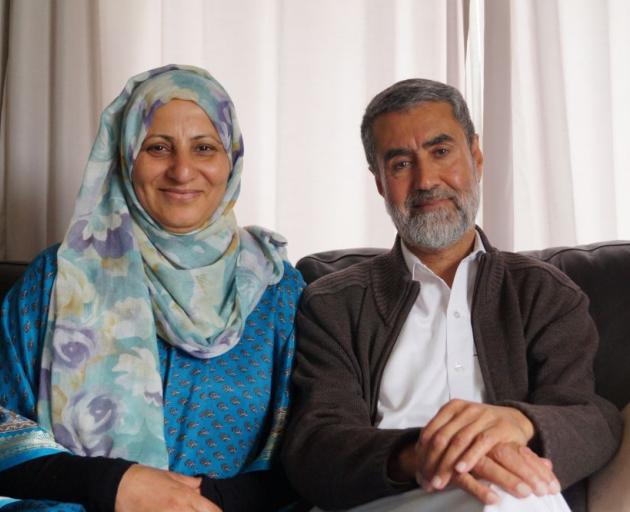
Najibullah Lafraie has had both the Taliban and Jenny Shipley after him, but the former refugee now leads a far more peaceful life than in his previous years in Afghanistan.
Dr Lafraie, his wife Zarghona and their four children came to New Zealand as refugees in 2000, after hiding from the Taliban for a year and eventually fleeing Kabul for neighbouring Pakistan.
Before moving to New Zealand, Dr Lafraie had lived in Afghanistan, as well as Hawaii, where he gained a PhD in political science; and Pakistan, where he helped with international relations in the campaign against the invasion of Afghanistan by the Soviet Union in the late 1970s.
After the communist regime fell in 1992, he and his wife returned to Afghanistan, where he picked up the role of Minister of State for Foreign Affairs in Afghanistan.
His deputy minister was Hamid Karzai, who later became President of Afghanistan.
After the Taliban began invading in 1996, the Lafraie family went into hiding for a year, taking refuge in family members' houses around Kabul, Dr Lafraie said.‘‘[Then] I knew we had to get out,'' he said.
Dr Lafraie took a month-long journey alone through uncaptured areas of Afghanistan to reach the safety of Pakistan.
His family soon followed, taking just a day to reach the border, and the burka conveniently provided some security for the hidden identities, Mrs Lafraie said.‘‘If they [the Taliban] had identified us, though ... '' she said, recounting the journey.
The Lafraies then lived in Pakistan until their shift to New Zealand in 2000.
After a long process applying for refugee status, their case was finally transferred to an office in Islamabad, where a visiting New Zealand immigration officer suggested they come to New Zealand.
The Lafraies knew little about the country more than 13,000km away, other than that cricket was played here. They had their hearts set on Australia, as they had other family members there.
But they were soon convinced by a family friend living in New Zealand.
The family arrived at the Mangere Refugee Resettlement Centre in Auckland in September 2000, before joining the small Afghan community in Christchurch.
Dr Lafraie proved over-qualified for many jobs and went to study at teachers college, instead.
After September 11, 2001, he was approached by the University of Otago to teach a paper on terrorism and Afghanistan politics, so the family moved to Dunedin in 2002.
His one-year contract extended into more than 10 years of lecturing after his papers proved popular and Dr Lafraie retired at the end of last year.
The Lafraies said they rarely had any issues adjusting to New Zealand life, and most of the people they met were very welcoming.
Dr Lafraie said the biggest issue they faced was from former prime minister Jenny Shipley who, in opposition, waged a ‘‘campaign'' against him, after he praised the Labour government at the time for welcoming refugees.
He said she had found out that he had helped with the fight against the Soviet invasion of Afghanistan and then claimed he was dangerous and he had ‘‘the blood of 50,000 people'' on his hands, Dr Lafraie said with a laugh.
‘‘I didn't take it too seriously.''The Lafraies' four children have all gone through university and one daughter now lives in the United States with her husband and three children.
Mrs Lafraie studied nursing at the University of Otago when the family moved to Dunedin and now works at Dunedin Hospital. Dr Lafraie is part of the Dunedin Refugee Steering Group that encouraged the initial support to welcome refugees to Dunedin.
Mrs Lafraie is looking forward to welcoming Syrian refugees to Dunedin.‘‘It's not easy to leave your home ... cut off from everything to run for safety.''She hoped the city would welcome the Syrians in the best possible way.
‘‘I wish them all the best.''












